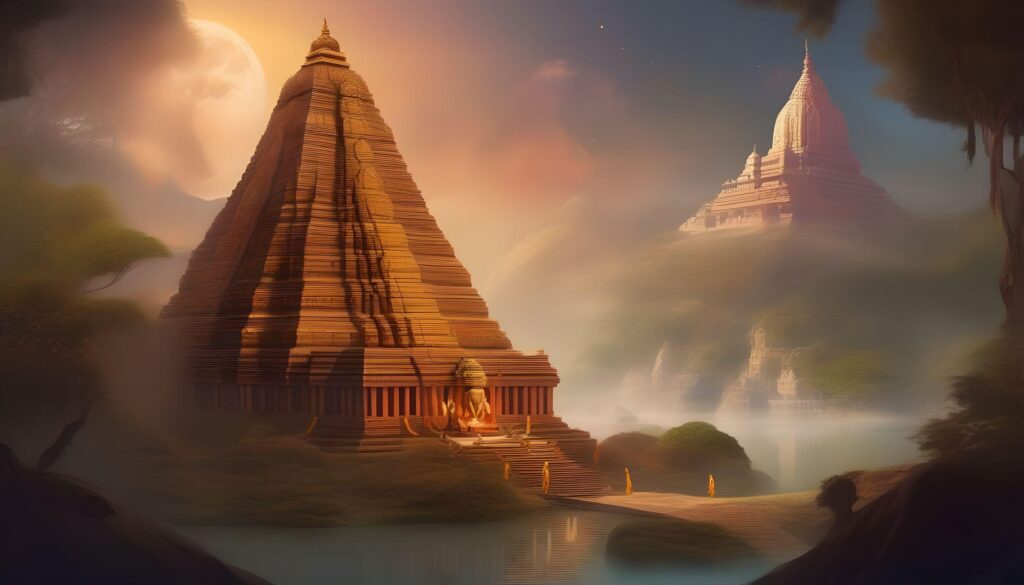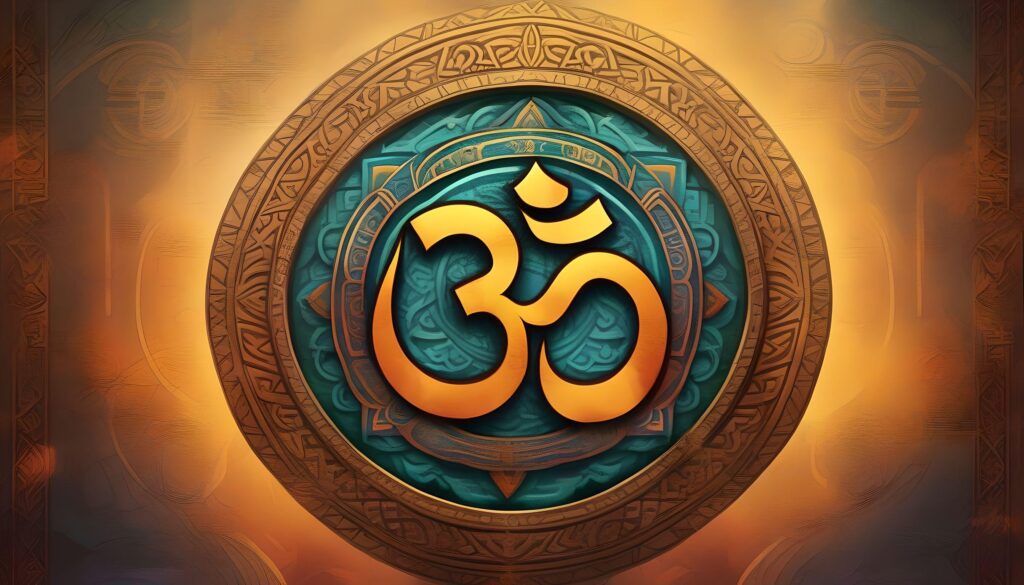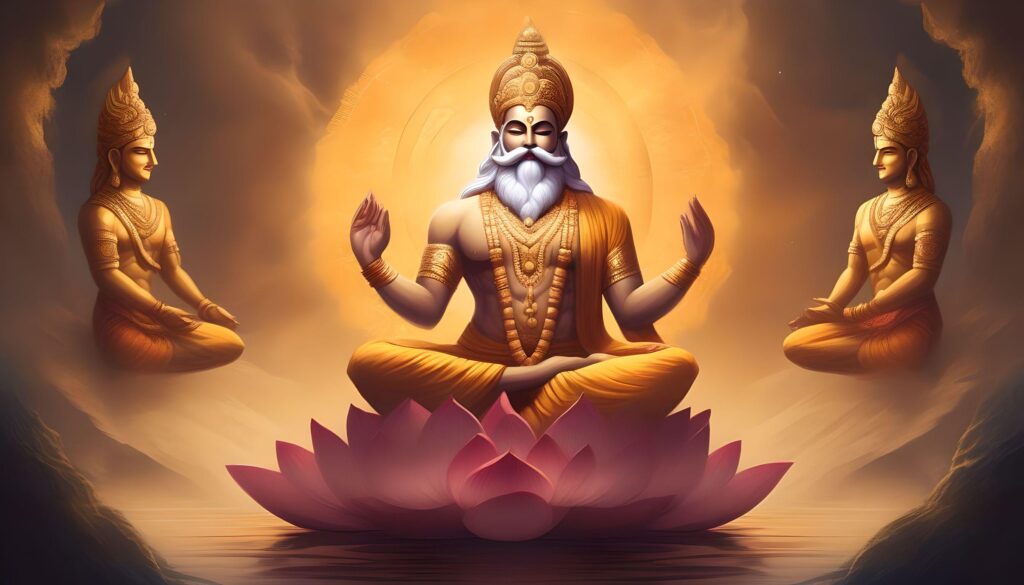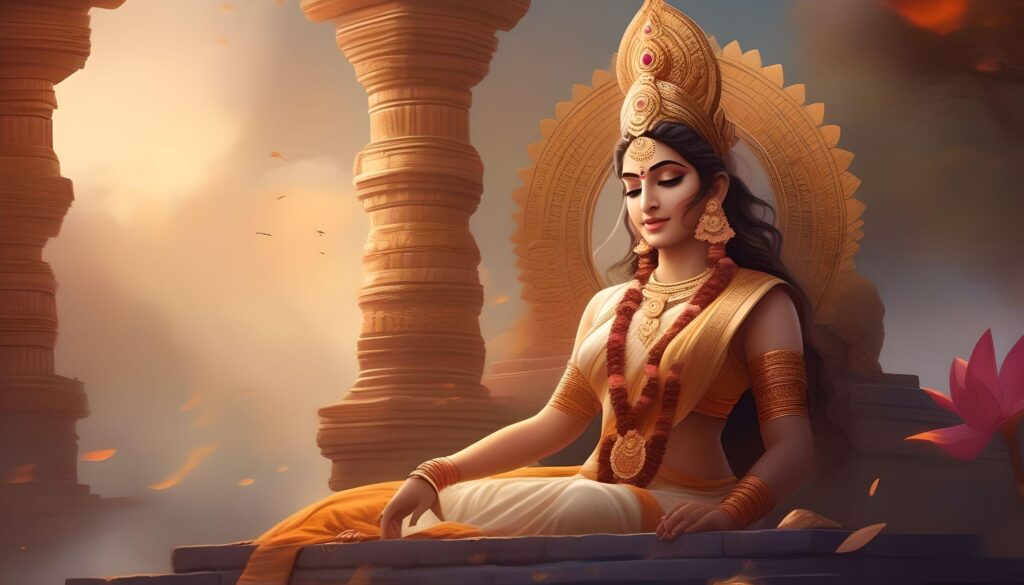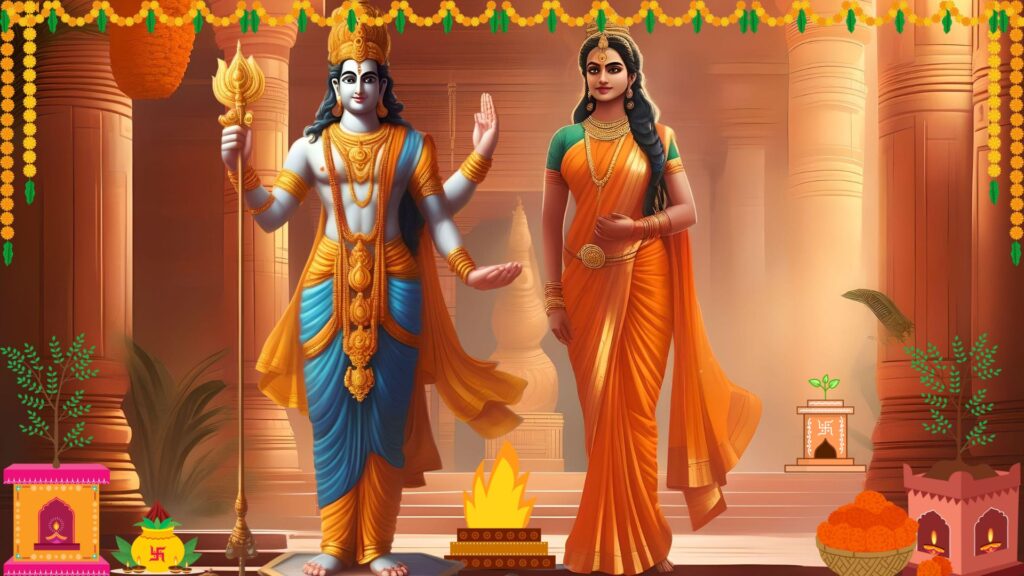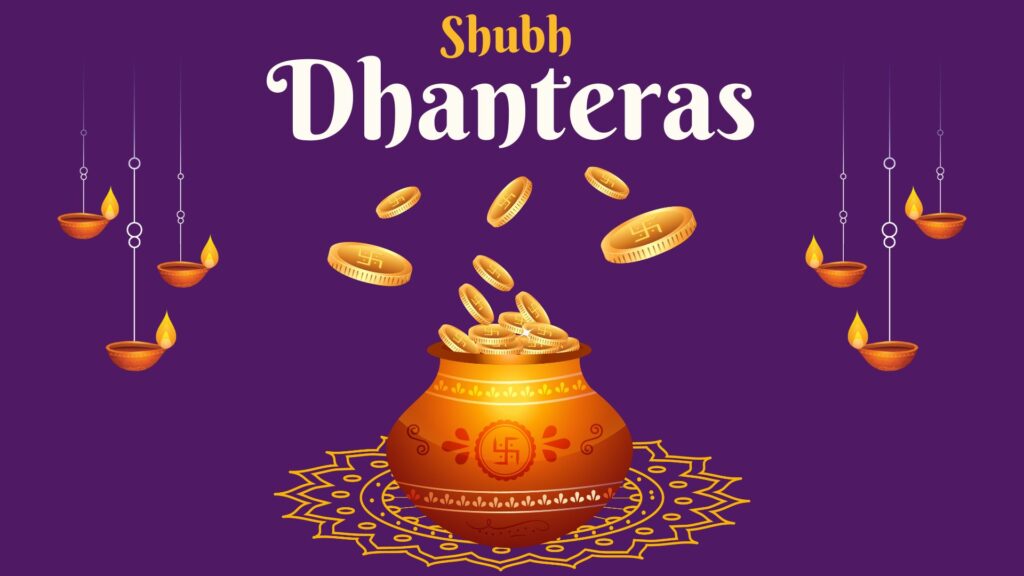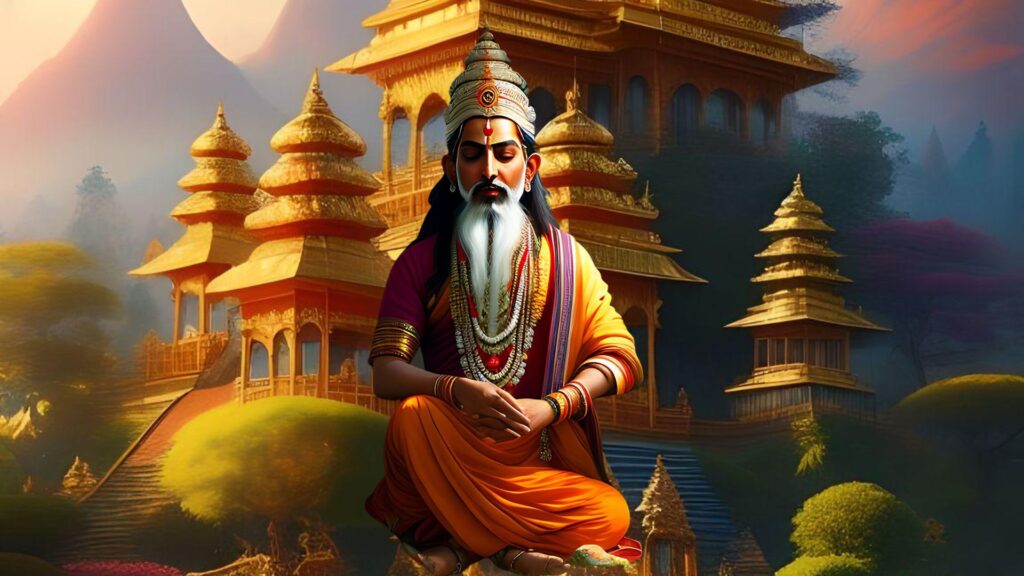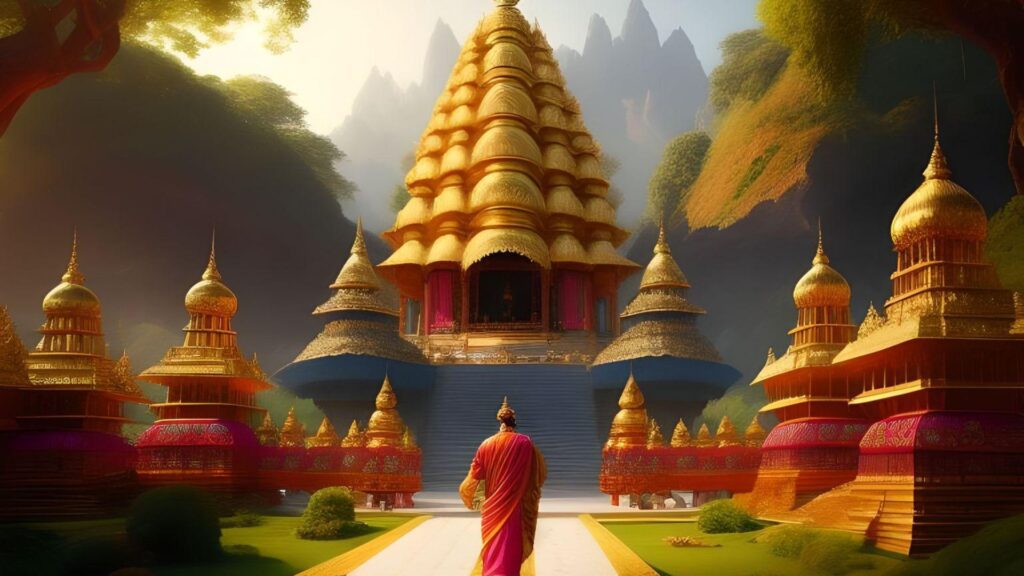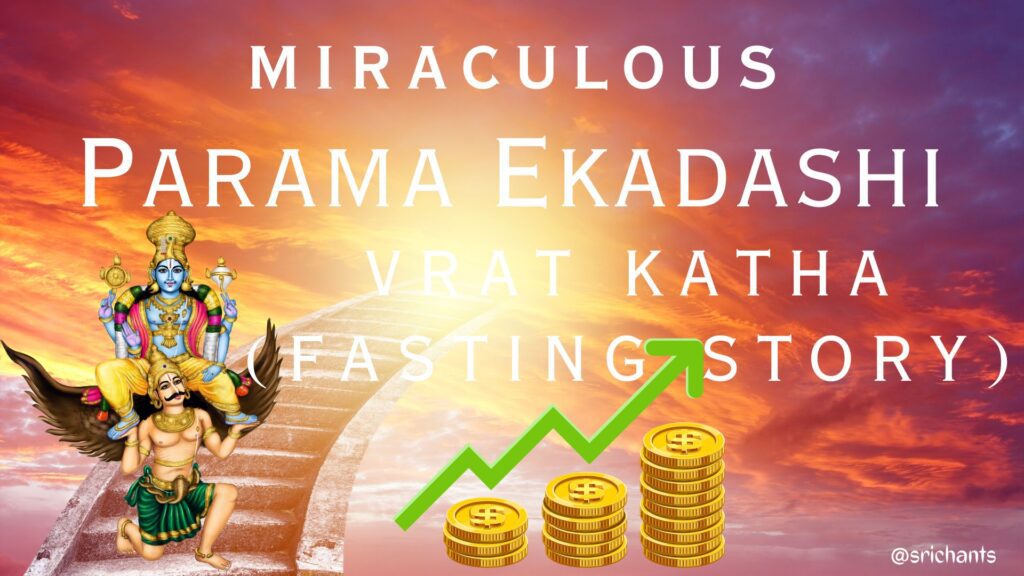Hinduism Beyond Ritualism: Exploring the Deeper Aspects
Hinduism, one of the world’s oldest religions, is frequently misconstrued as a collection of rituals and practices. Nevertheless, Hinduism transcends mere outward manifestations of devotion and comprises an intricate fabric of philosophical, spiritual, and cultural elements. This article provides an in-depth analysis of Hinduism, examining its profound teachings and emphasizing its importance that extends beyond mere ceremonial observance.
The Origins and Philosophy of Hinduism
A Historical Perspective
The genesis of Hinduism can be traced back to the thriving Indus Valley Civilization, which endured for millennia. Hinduism, a philosophical tradition devoid of a singular progenitor, is profoundly impacted by the sacred scriptures Upanishads and Vedas, which embody the profound insights of seers and sages.
The Concept of Dharma
The fundamental tenet of Hinduism is dharma, an immutable principle that dictates both the cosmic arrangement and the responsibilities of individuals. Dharma promotes the adoption of a virtuous and pious way of life, wherein individuals conscientiously carry out their duties and obligations to both oneself and society.
The Key Tenets of Hinduism
Moksha: Liberation from the Cycle of Birth and Death
Bodily transformation, or moksha, is a fundamental goal in Hinduism, signifying an escape from the perpetual cycle of existence, demise, and rebirth. By means of spiritual practices and self-realization, people attempt to transcend the cycle and unite with the divine.
Karma: The Law of Cause and Effect
Hindu philosophy posits that each action has repercussions, both in the present life and in the afterlife. The principle of karma underscores the notion that persons are culpable for their deeds and will correspondingly experience the repercussions. Through the comprehension and effective management of their karma, people have the ability to mold their fate.
The Trimurti: Brahma, Vishnu, and Shiva
The divine entities comprising the Trimurti—Brahma, Vishnu, and Shiva—are symbolised as the forces of creation, preservation, and annihilation, correspondingly. These divine beings represent the recurring pattern of being and are venerated in a multitude of configurations and expressions.
Hindu Rituals and Practices
Puja: Communing with the Divine
Worship, or puja, is an integral part of Hinduism. It involves presenting deities with petitions, flowers, incense, and other symbolic offerings. Devotees forge an intimate rapport with the divine and entreat for the well-being of themselves and their cherished ones via puja.
Festivals: Celebrating the Divine Play
Hinduism is abundant in lively celebrations honoring a multitude of mythological occurrences and deities. These festivities, which range from the festival of lighting (Diwali) to the festival of colors (Hooli), unite communities, promote solidarity, and strengthen cultural identity.
Hinduism and Spirituality
Yoga: Union of the Body, Mind, and Spirit
Yoga, an ancient Hindu discipline, presents a comprehensive methodology for attaining spiritual enlightenment and self-actualization. Achieving inner serenity and enlightenment, practitioners endeavor to harmonize the body, mind, and spirit via the implementation of physical postures, breath control, and meditation.
Vedanta: The Essence of the Vedas
The philosophical school Vedanta investigates the profound implications of the Vedas and Upanishads. This work explores the fundamental aspects of reality, the self, and the ultimate truth, providing guidance to individuals in their quest for self-realization and understanding.
Hinduism and Social Values
Ahimsa: Non-Violence and Compassion
In Hinduism, ahimsa, or the principle of nonviolence, is a fundamental value. It advocates for the cultivation of empathy towards all sentient beings and urges people to refrain from inflicting damage through their verbal expressions, behaviors, and thoughts.
Seva: Selfless Service
In Hindu culture, seva, or selfless service, is profoundly ingrained. It requires assisting those in need, regardless of religion, creed, or social standing. Seva enables individuals to exemplify the virtue of compassion while actively participating in the betterment of society.
Hinduism and the Global Community
Hinduism’s Influence on the World
The teachings and practices of Hinduism have exerted a profound influence on numerous facets of global culture, surpassing geographical limitations. The enduring influence and life-altering potential of Hinduism remains evident in Western cities, where yoga studios are prevalent and meditation techniques are widely embraced.
Embracing the Essence of Hinduism
Embedded in its rituals, Hinduism constitutes a profound and dynamic spiritual tradition. The enduring teachings of this entity offer guidance to those in search of personal development, self-actualization, and a more profound comprehension of the cosmos. Through wholeheartedly embracing the fundamental tenets of Hinduism, an individual may initiate a profound and metamorphic quest for interior tranquility and transcendent spiritual illumination.
#Hinduism #Dharma #Moksha #karma #CauseandEffect #Trimurti #Brahma #Vishnu #Shiva #Divine #Yoga #Vedas #Ritualism #hindu #om #world #festival #whatishinduism #whoarehindus #hindupopulation #hindugods
